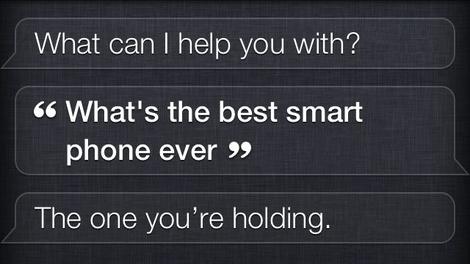
Best Mac web browser: 6 reviewed and rated
Browsers are hugely important in modern computing. A decade ago, you might have launched one to check the occasional website, twiddling your thumbs as content downloaded painfully slowly over a dial-up modem.
Today, most Mac users are on broadband and often rely on the internet for news, entertainment and social tools. Increasingly, work is also moving to the web, with people as likely to use Gmail or Facebook as Apple's Mail, or online office suites like Google Docs rather than Microsoft Office and iWork.
Therefore, modern browsers must be robust, fast and dependable. Regarding the six browsers we chose to test, Safari is the OS X default, Chrome and Firefox battle for second-place globally behind Internet Explorer (the default browser for Windows, not available for Mac) and Opera is a popular alternative.
iCab, OmniWeb and Camino didn't make our line-up this time round; iCab hasn't been updated in over a year, and the other two appear to be in maintenance mode for the most part.

The last two spots have therefore gone to RockMelt and Sleipnir, which, respectively, focus on social network integration and modern gestural-based controls.
We largely focus on usability for this group test, because features are what tend to set modern browsers apart, not performance. That said, we did subject each browser to technical tests (web standards support, scripting speed, and so on).
Objectively, Chrome led, followed by RockMelt, with Firefox and Sleipnir middling and Safari and Opera bringing up the rear. But the regularly updated Chrome and Firefox felt like the snappiest browsers, especially when dealing with demanding content like HTML5 games.
Test one: Ease of use
How intuitive and straightforward is the interface?

Despite increasing complexity from new features and the annoying lack of a unified address bar, Safari is very usable, with strong OS X integration.
Chrome bests Safari in its unified address bar, is fast and integrates well with OS X; the inflexible start page (installed web apps or eight recent sites) is perhaps a missed opportunity.
The previously complex Firefox and Opera are now pared-down by default and thereby much improved, although Firefox doesn't work with keychain or the OS X dictionary, and Opera's starting to become a bit cluttered with icons. Opera's visual tab previews and iPhoto-style zoom slider are nice touches though.
RockMelt is Chrome with additions. The social shortcuts add clutter, which Quiet Mode can banish, but then you might as well use Chrome. Sleipnir has the façade of ease and nice ideas (zoomable tab previews, gestural controls), but feels unfinished, and lacks a permanent address bar.

Test two: Extensibility
Can you personalise the interface or add plug-ins?

Sleipnir offers no plug-ins or extensions, and the interface is very locked down - you get what you get.
Elsewhere, Firefox remains king of add-ons, with a massive range of extensions, appearance options and plug-ins. In the past, this aspect of Firefox was quite impenetrable for newcomers, but the add-ons page is now friendly, well-organised and includes a useful intro video.
The other browsers all end up second-best, but still impress. Safari's relatively new to extensions but has plenty of addons, as does Opera, which also offers a highly configurable browser interface.
Chrome has muddied the water a little too much with its web store, which mixes impressive extensions with 'apps' that are often essentially web page links; RockMelt builds on Chrome with additional RockMelt apps - feeds for loading mobile browser-style sidebars. These can be useful, but it's too easy for RockMelt to become a mess.

Test three: Accessing content
Is it easy to search the web and bookmark favourites?

All browsers offer in-page searching, highlighting terms across a page. Safari is clearest, but Opera impresses by enabling you to force-match cases and whole words.
Firefox disappoints with a manual 'highlight all' button, but wins out elsewhere: its so-called 'awesome bar' (address bar) is adaptable, enabling you to type terms or URLs to grab matches from your history, bookmarks and open tabs; you can also tag and add keywords to bookmarks.
Opera largely matches Firefox, with a great address bar, bookmark keywords, and it also has a clean intro page for pinned favourites.
Of the rest, Chrome and RockMelt enable keywords for search engines, but bookmarks management is basic, and Safari boasts an impressive 'Top Sites' screen but gloss impacts negatively on visual history search, which is sluggish; Sleipnir tries something new with a categorised tabbing and bookmarks system, but it confuses rather than helps.

Test four: Blocking content
Can you block unwanted content and phishing scams?

Blocked content is usually either dangerous or irritating in nature. The former kind typically involves 'phishing' sites, which attempt to fool you into giving up personal information.
Excepting Sleipnir, all browsers on test deal with phishing, and they clearly warned when we tried to access such sites. Content that's considered annoying will vary from person to person, perhaps involving advertising, scripts or pop-ups.
Sleipnir redeems itself somewhat with an excellent one-click ad-block function, while Safari has simple preferences for blocking scripting and plug-ins. The others all require more user involvement, activating a bunch of options.
Without add-ons, Firefox's blocking options are disappointingly limited, but Chrome and RockMelt have a great range of settings, despite 'hiding' them somewhat in Settings > Under the Bonnet > Content Settings.
Opera has fewer options, but they're easily accessible via Opera > Quick Preferences.

The winner: Chrome

With the exception of Sleipnir, which feels like a work-in-progress, any of these browsers would be fine as a primary browser.
However, RockMelt's attempts to integrate social networking and its own slew of 'apps' on top of Chrome add clutter and irritate; Opera and Safari suffer a little due to performance issues and also Safari's relatively slow update cycle.
Of the two standouts, Chrome pips Firefox. While Mozilla's offering, especially in terms of extensibility and accessing content, it somehow feels a little dated, and its lack of OS X integration grates.
By contrast, Google's browser feels current, performs well across the board (not least with HTML5-based apps), and it also feels perfectly at home on the Mac.























-470-75.jpg)











